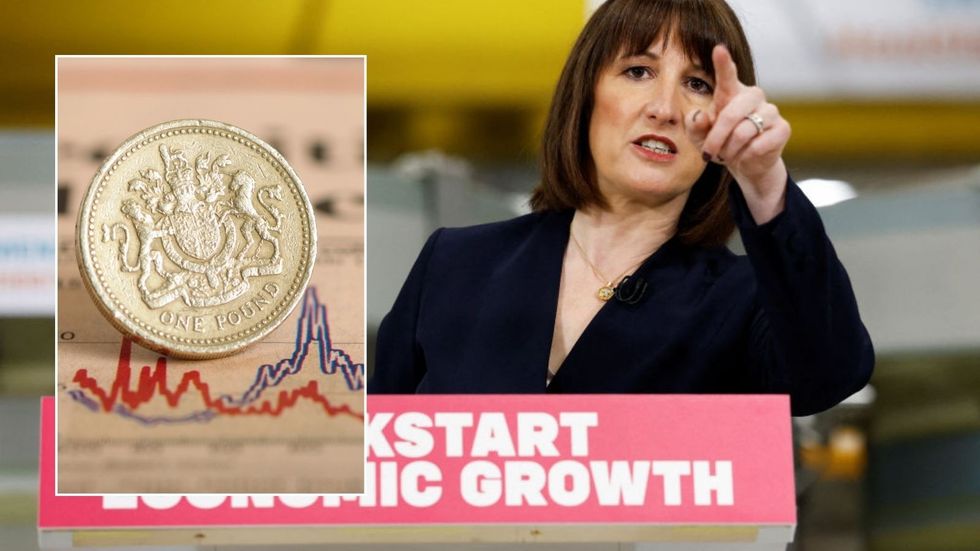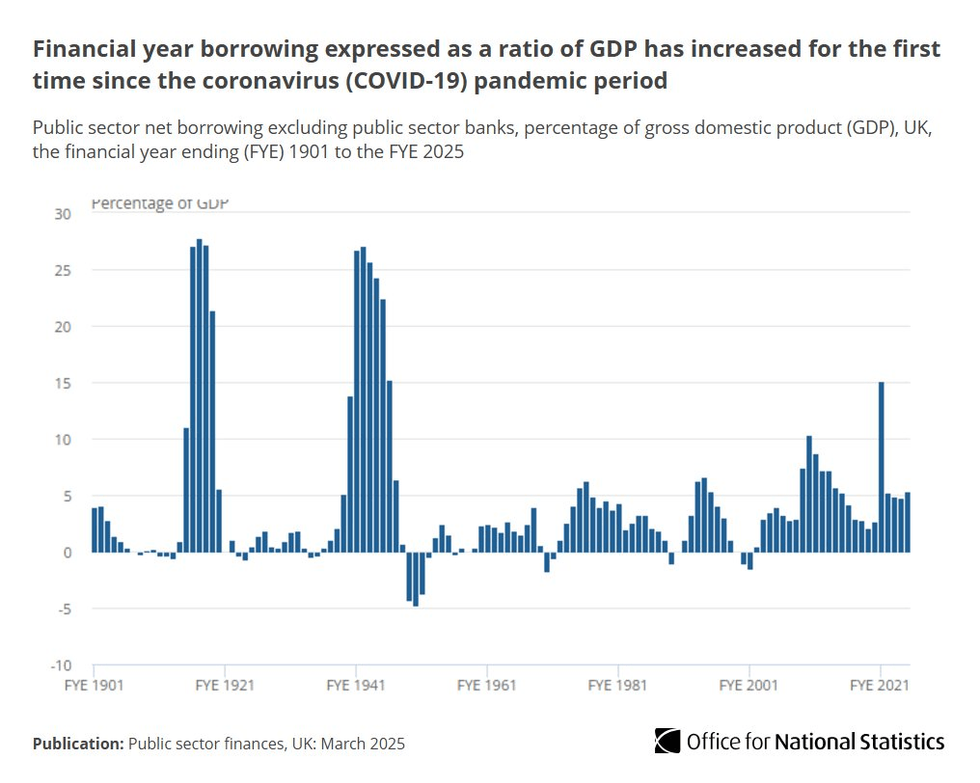Economy update: UK borrowing costs surge to 'third-highest level on record' in ANOTHER blow to Rachel Reeves
Figures from the ONS report that public sector net borrowing increased to £151.9billion in the year to the end of March
Don't Miss
Most Read
Trending on GB News
The UK's borrowing costs soared higher than expected in another blow to Chancellor Rachel Reeves, according to the latest figures from the Office for National Statistics (ONS).
Britain's statistics authority found that public sector net borrowing rose to £151.9billion in the year to the end of March despite Labour's attempts to manage the nation's finances.
This figure is £14.6billion higher than the £137.3billion projected by the Office for Budget Responsibility (OBR) ahead of the publication of today's figures.
Notably, the 12-month figure was also £20.7billion higher than the public borrowing costs from the same period the year earlier.
 UK borrowing costs continue to rise in a blow to Reeves GETTY
UK borrowing costs continue to rise in a blow to Reeves GETTY According to the ONS, it was the third-highest level of borrowing in any financial year since records began in 1947.
The latest figures are only behind the Covid pandemic in the year to 2021, and the 2010 financial year following the global crisis.
This comes as borrowing rose to £16.4billion last month, the third-highest March borrowing since monthly records began, the ONS reports.
Grant Fitzner, the ONS’s chief economist, broke down what these figures mean for the UK economy.
Do you have a money story you’d like to share? Get in touch by emailing money@gbnews.uk.

The ONS published its latest borrowing figures earlier today
ONS
He explained: "Our initial estimates suggest public sector borrowing rose almost £21 billion in the financial year just ended as, despite a substantial boost in income, expenditure rose by more, largely due to inflation-related costs, including higher pay and benefit increases.
"At the end of the financial year, debt remained close to the annual value of the output of the economy, at levels last seen in the early 1960s."
Professor Joe Nellis, an economic adviser at MHA, contextualised these ONS figures amid the IMF's latest forecast and the fallout of the Chancellor's Spring Statement.
He shared: "Public sector borrowing increased in March, as the government spent £16.4billion more than it received in income. This places the small fiscal headroom of £9.9billion that the Chancellor manufactured in her Spring Statement under even greater threat.
"While the UK bond market has calmed since reaching a yield of almost 4.9 per cent on January 14, yields on UK bonds remain relatively high and the prospect of ‘sticky’ inflation could raise them even further.
"Alongside this, global headwinds — the IMF has slashed its forecast for global growth in 2025 by 0.5 per cent as a result of trade tensions — are compounding already low domestic growth forecasts.
LATEST DEVELOPMENTS:

Rachel Reeves is heading to Washington to meet with the Trump administration
GETTY/PARLIAMENTLIVE.TV"Rachel Reeves arrives in Washington for crucial talks with the US administration hoping that an Anglo-American trade deal can go some way to reignite the economy, but there is nothing guaranteed until both sides put pen to paper.
"These economic developments will make it very difficult for the Government to ‘balance the books’ as interest payments on government loans continue to rise.
"Despite the work done at the Spring Statement to demonstrate a robust and stable economy, the Chancellor’s fiscal headroom is unlikely to survive for long."








